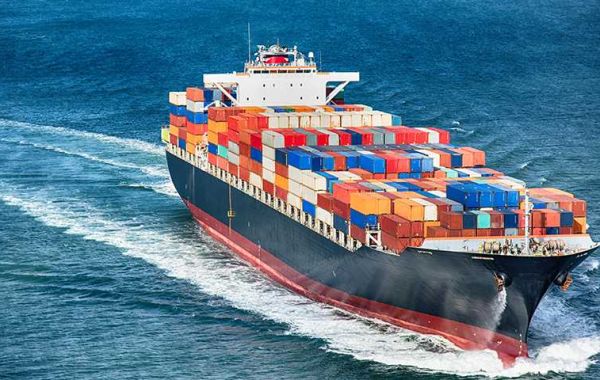In today’s interconnected world, businesses rely heavily on global trade to deliver goods efficiently and profitably.
However, transporting goods across vast distances—whether by land, sea, or air—comes with its share of risks.
Marine Cargo Transit Insurance plays a crucial role in safeguarding your assets against the uncertainties inherent in shipping.
From natural disasters to theft, this specialized insurance ensures your goods are protected every step of the way.
Understanding Marine Cargo Transit Insurance
Marine Cargo Transit Insurance is a comprehensive policy designed to cover goods during transportation.
It provides protection against various risks, such as damage, loss, or theft, whether your goods are being transported by ship, truck, rail, or air.
Despite its name, marine cargo insurance is not limited to sea transport; it also encompasses inland transit coverage, making it a versatile option for businesses involved in domestic and international trade.
Why Is Marine Cargo Transit Insurance Important?
Shipping goods involves inherent risks, including:
- Natural Disasters: Storms, earthquakes, or floods can wreak havoc on shipments.
- Accidents: Collisions or mishandling during loading and unloading can damage goods.
- Theft or Piracy: High-value shipments are prime targets for theft during transit.
- Human Error: Mistakes in packaging, labeling, or storage can lead to damaged cargo.
- Customs Delays: Goods can be held up or mishandled at customs, leading to potential losses.
Without adequate insurance, businesses bear the financial burden of these risks, which can disrupt operations and erode profitability.
Marine Cargo Transit Insurance mitigates these risks, offering peace of mind and financial security.
Key Features of Marine Cargo Transit Insurance
- Comprehensive Coverage: Protects goods from the point of origin to the final destination, including transit and storage.
- Flexible Policies: Tailored solutions for specific industries, shipment types, and transit modes.
- Global Reach: Coverage for international and domestic shipments, ensuring seamless protection across borders.
- Risk Management Support: Many insurers offer expert advice on packaging, routing, and other risk-reduction strategies.
- Claims Assistance: Streamlined claims processes to minimize disruptions in case of an incident.
Types of Marine Cargo Transit Insurance
- Single Transit Insurance: Covers a one-off shipment, ideal for businesses that ship goods infrequently.
- Open Cover Insurance: Provides ongoing coverage for multiple shipments over a specified period, suited for businesses with regular trading activities.
- Specific Voyage Policy: Protects goods for a particular journey, often used for high-value or sensitive shipments.
- Annual Policy: Offers coverage for all shipments within a year, providing a cost-effective solution for frequent shippers.
Benefits of Marine Cargo Transit Insurance
- Financial Protection: Reduces the financial impact of unexpected events, ensuring business continuity.
- Customer Confidence: Demonstrates a commitment to safeguarding client goods, enhancing trust and credibility.
- Legal Compliance: Some countries or trade agreements mandate insurance for specific types of goods or routes.
- Customizable Solutions: Policies can be tailored to specific needs, offering flexible and targeted protection.
- Peace of Mind: Knowing your goods are insured allows businesses to focus on core operations rather than worrying about potential losses.
How to Choose the Right Policy
Selecting the right Marine Cargo Transit Insurance policy depends on various factors:
- Nature of Goods: Fragile or high-value items may require specialized coverage.
- Mode of Transport: Policies vary depending on whether goods are transported by sea, air, rail, or road.
- Frequency of Shipments: Frequent shippers may benefit from annual policies, while infrequent shippers can opt for single transit insurance.
- Geographic Scope: Ensure the policy covers all intended destinations, including high-risk zones.
- Policy Limits and Exclusions: Understand the coverage limits and exclusions to avoid surprises during claims.
Tips for Maximizing Protection
- Choose Reputable Insurers: Work with established providers experienced in marine cargo and transit coverage.
- Assess Risks Thoroughly: Identify potential vulnerabilities in your supply chain and ensure they are covered.
- Ensure Proper Documentation: Accurate and detailed documentation expedites claims and minimizes disputes.
- Invest in Proper Packaging: Minimize the risk of damage by using appropriate packaging materials.
- Monitor Shipments: Leverage tracking technology to stay informed about the location and condition of your goods.
The Role of Marine Cargo Transit Insurance in Supply Chain Resilience
In the modern business landscape, a resilient supply chain is critical for success.
Marine Cargo Transit Insurance strengthens supply chain resilience by mitigating risks and reducing financial exposure.
It allows businesses to maintain operational continuity, even in the face of unexpected challenges.
For instance, a manufacturing company relying on imported raw materials can safeguard its production schedule by insuring its shipments.
Similarly, exporters can avoid reputational damage by ensuring timely delivery of undamaged goods to clients, even if disruptions occur during transit.
Common Misconceptions About Marine Cargo Transit Insurance
- It’s Only for Large Businesses: Small and medium-sized enterprises (SMEs) can also benefit significantly from this insurance, particularly for high-value shipments.
- General Insurance is Enough: General liability or property insurance does not cover goods in transit; specialized marine cargo policies are essential.
- Coverage is Automatic: Shipping contracts often do not include insurance, leaving businesses exposed unless they secure their own policies.
Conclusion
Marine Cargo Transit Insurance is an indispensable tool for businesses engaged in trade.
By protecting goods against unforeseen risks, it not only ensures financial stability but also fosters trust among clients and partners.
Whether you’re a small enterprise or a multinational corporation, investing in the right policy can make all the difference in achieving seamless and secure transportation of goods.
In a world where supply chain disruptions are inevitable, Marine Cargo Transit Insurance offers the assurance businesses need to navigate the complexities of global trade with confidence.
Don’t leave your goods vulnerable; ensure they are protected across land and sea.








